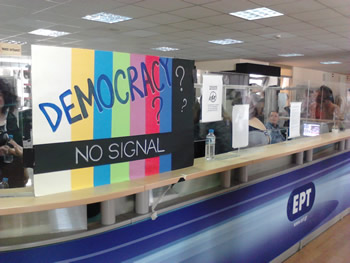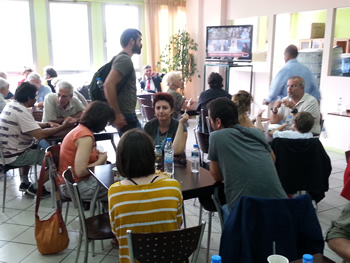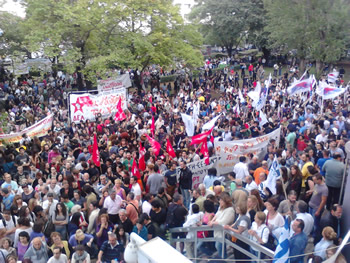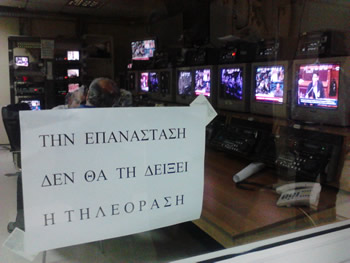- Afghanistan
- Afrika
- Ägypten
- Albanien
- Algerien
- Angola
- Antigua
- Äquatorialguinea
- Arabien - Arabische Welt
- Argentinien
- Armenien
- Aruba
- Aserbaidschan
- Asien
- Äthiopien
- Australien
- Bahamas
- Bahrain
- Bangladesch
- Barbados
- Belarus (Weißrussland)
- Belgien
- Belize
- Benin
- Bhutan
- Bolivien
- Bosnien-Herzegowina
- Botswana
- Brasilien
- Bulgarien
- Burkina Faso
- Burundi
- Chile
- China
- Costa Rica
- Dänemark
- Dominica
- Dominikanische Republik
- Dschibuti
- Ecuador
- El Salvador
- Elfenbeinküste
- Eritrea
- Estland
- Europa
- Fidschi
- Finnland
- Frankreich
- Gabun
- Gambia
- Georgien
- Germany
- Ghana
- Grenada
- Großbritannien
- Guatemala
- Guinea
- Guinea-Bissau
- Guyana
- Haiti
- Honduras
- Indien
- Indonesien
- Irak
- Iran
- Irland
- Island
- Israel
- Italien
- Japan
- Jemen
- Jordanien
- Kambodscha
- Kamerun
- Kanada
- Kap Verde
- Kasachstan
- Katar
- Kenia
- Kirgisistan
- Kolumbien
- Kongo (Demokratische Republik)
- Kongo (Republik)
- Korea - Volksdemokratische Republik
- Kosovo
- Kroatien
- Kuba
- Kuwait
- Laos
- Latein- und Zentralamerika
- Lesotho
- Lettland
- Libanon
- Liberia
- Libyen
- Liechtenstein
- Litauen
- Luxemburg
- Madagaskar
- Malaysia
- Malediven
- Mali
- Malta
- Marokko
- Mauretanien
- Mauritius
- Mexiko
- Moldawien / Republik Moldau
- Mongolei
- Montenegro
- Mosambik
- Myanmar
- Namibia
- Nauru
- Nepal
- Neuseeland
- Nicaragua
- Niederlande
- Niger
- Nigeria
- Nordmazedonien
- Norwegen
- Oman
- Österreich
- Pakistan
- Palästinensische Gebiete - Westbank und Gaza
- Palau
- Panama
- Papua-Neuguinea
- Paraguay
- Peru
- Philippinen
- Polen
- Portugal
- Ruanda
- Rumänien
- Russland
- Salomonen
- Sambia
- Sankt Lucia
- São Tomé und Principe
- Saudi-Arabien
- Schweden
- Schweiz
- Senegal
- Serbien
- Sierra Leone
- Simbabwe
- Singapur
- Slowakei
- Slowenien
- Somalia
- Spanien
- Sri Lanka
- Südafrika
- Sudan
- Südkorea
- Südsudan
- Suriname
- Swasiland/Eswatini
- Syrien
- Tadschikistan
- Taiwan
- Tansania
- Thailand
- Timor-Leste
- Togo
- Trinidad und Tobago
- Tschad
- Tschechien
- Tunesien
- Türkei
- Turkmenistan
- Uganda
- Ukraine
- Ungarn
- Uruguay
- USA
- Usbekistan
- Vanuatu
- Venezuela
- Vereinigte Arabische Emirate
- Vietnam
- Westsahara - Demokratische Arabische Republik Sahara
- Zentralafrikanische Republik
- Zypern
- Ansätze der Selbstverwaltung in Griechenland
- Arbeitsbedingungen in Griechenland
- Arbeitskämpfe in Griechenland
- Aus der Geschichte Griechenlands
- Gewerkschaften in Griechenland
- Kampf gegen Privatisierung in Griechenland
- Lebensbedingungen in Griechenland
- Menschenrechte in Griechenland
- Politik in Griechenland
- Soziale Konflikte in Griechenland
- Wirtschaft in Griechenland
Saving On Democracy: The closure of the Greek public broadcasting service ERT is the next step of the authoritarian state towards the end of democracy – with the support of the troika
Article by Hanno Bruchmann and Kelly Mulvaney, July 2013
 After another visit to Athens, the troika has shown no signs of stopping its support for authoritarian politics in Greece. The Greek Prime Minister Antonis Samaras did not reckon with so much resistance when he fired the over 2500 employees of the public broadcasting service ERT. The move was Samaras’ attempt to please the EU and IMF, which had demanded that 2000 public-sector jobs be eliminated by the end of June in order for the Greek government to receive credit to finance its debt. The measure could only be carried out with the support of counterinsurgency units who cleared the path to transmission stations, cut the signal and secured the stations.
After another visit to Athens, the troika has shown no signs of stopping its support for authoritarian politics in Greece. The Greek Prime Minister Antonis Samaras did not reckon with so much resistance when he fired the over 2500 employees of the public broadcasting service ERT. The move was Samaras’ attempt to please the EU and IMF, which had demanded that 2000 public-sector jobs be eliminated by the end of June in order for the Greek government to receive credit to finance its debt. The measure could only be carried out with the support of counterinsurgency units who cleared the path to transmission stations, cut the signal and secured the stations.
“Suddenly the screen was black,” recalled Theodora, a philosophy doctorate employed in the public service in Thessaloniki who was watching one of the three ERT television channels on the evening of June 11. After the government announced the shutdown of the public broadcasting service ERT, she had turned on the television to watch what would happen. When the signal was suddenly gone, she called her sister Iliana, an ERT employee, and set out to Athens. Like thousands of others, she would join in the protest against the decision and support former the employees as they occupied ERT’s central building.
An outpour of public support followed. Inside the ERT headquarters, employees seamlessly continued broadcasting via internet channels as the television signal was cut and turned programming into a continuous protest. The front lawn outside the building was transformed into a protest camp where rallies have been held continuously since June 11. On June 13, the third general strike of 2013 was held across Greece in solidarity with ERT workers.
Representatives from the socialist party PASOK and the democratic left party DIMAR, which together with Samaras‘ New Democracy formed the ruling parliamentary coalition, issued statements claiming that they were not consulted on the decision to close ERT and accused Samaras of circumventing the law. An emergency meeting of the coalition was held on June 17. Citing his party’s opposition to ‚autocratic behavior‘, the leader of DIMAR Fotis Kouvelis announced its exit from the coalition on June 21. The departure of DIMAR left the ruling coalition with a mere three-seat majority in the parliament and forced a significant restructuring of the cabinet. Yet the fall of the coalition was narrowly avoided as independent members of parliament and certain members of DIMAR declared their pledge to vote with the coalition. A statement from the radical-left front Syriza on the restructured coalition aruged that “the new PASOK-ND government with the a la carte support from DIMAR confirms the complete failure of the bailout ’success story‘.”
 As an attempt to shut down the entire public broadcasting sector, the closing of ERT marked a new type of social attack in Greece. The instance has forced an older generation of Greeks to recall the only other time in ERT’s over 70 years of broadcasting that the signal was cut: in the German occupation during the Second World War. In the eyes of many Greeks the move marks an unprecedented exercise of executive power on the part of Samaras. On the same day of the emergency coalition meeting, the highest judicial instance in Greece, the Council of State, ruled the closure of ERT unconstitutional and demanded its reopening. Up to now this ruling has been ignored by the government, which continues to enforce the shutdown of all three national television channels, all three national and 19 regional radio stations belonging to ERT. While some former ERT employees continue broadcasting via internet, others have lost access to their means of media production. “I make documentaries with a team from the Euro-Meditteranean space. I have always communicated with my colleagues from my ERT email address. But now I no longer have an ERT email address. Everything has been cut,” reports Maria, a producer of documentaries for ERT’s global satellite channel.
As an attempt to shut down the entire public broadcasting sector, the closing of ERT marked a new type of social attack in Greece. The instance has forced an older generation of Greeks to recall the only other time in ERT’s over 70 years of broadcasting that the signal was cut: in the German occupation during the Second World War. In the eyes of many Greeks the move marks an unprecedented exercise of executive power on the part of Samaras. On the same day of the emergency coalition meeting, the highest judicial instance in Greece, the Council of State, ruled the closure of ERT unconstitutional and demanded its reopening. Up to now this ruling has been ignored by the government, which continues to enforce the shutdown of all three national television channels, all three national and 19 regional radio stations belonging to ERT. While some former ERT employees continue broadcasting via internet, others have lost access to their means of media production. “I make documentaries with a team from the Euro-Meditteranean space. I have always communicated with my colleagues from my ERT email address. But now I no longer have an ERT email address. Everything has been cut,” reports Maria, a producer of documentaries for ERT’s global satellite channel.
On June 14, a delegation from the European Broadcasting Union made its way to Athens to offer support to the former employees of its member network in Greece. Since then, a signal provided by EBU has allowed for ERT’s international channel, which up to the current crisis provided television programming for the large Greek diaspora, to be sent via satellite.
The decision to close ERT was made after the failure of the planned privatization of the Greek public gas provider Depa to Gazprom. The Russian gas conglomerate pulled back after EU authorities announced they would veto a purchase attempt, pointing to increased fears in the eurozone about the rising economic influence of Russia. While the unwritten rules of power politics in the eurozone may have been the reason Depa was not privatized, the Greek government nonetheless remained under the pressure of the troika of EU, IMF and ECB to continue with privatization schemes that form a major condition of the memoranda that spell out the austerity measures required in order for the government to receive the financing necessary to prevent state insolvency.
In an attempt to demonstrate the strength of his rule and his government’s commitment to structural adjustment, Samaras overextended his constitutional powers and was met with political and social outrage. The closure of Greek’s only public service broadcaster has not only sparked many a debate about the role of public media in democracy. It has further spread and intensified public opinion that the Greek government is undemocratic. Voices inside and outside of ERT could be heard commenting, “this is fascist.”
Antidemocratic austerity pushed by the German government and troika
The ERT closure seems to be further evidence of a longer development of increasing authoritarian tendencies in the European Union. Government leaders, feeling more responsible to the troika and financial markets than their constituencies, are inclined to bypass democratic mechanisms in order to implement the austerity policies demanded by these non-democratic, transnational apparatuses. Underneath the neoliberal language of efficiency, competititveness and reform used in the politics of crisis and austerity, a deeper look into the details of the ERT closure reveal the contradictions of this course.
 People in Greece are all too familiar with the memoranda of the troika. These „agreements“ dictate measures which the government – and ultimately the people – must meet if the state is to continue receiving the promised credit tranches. Up to now, such measures included raising the retirement age, reducing wages, privatization and so on – the whole neoliberal program in one hit. The consequences include a 27 percent unemployment rate. Two thirds of the youth population is unemployed. Each day one thousand people in Greece lose their jobs. Homelessness and suicide have skyrocketed. The healthcare system has collapsed. People are not receiving medicine and health services, leading to an increase in deaths due to remediable diseases.
People in Greece are all too familiar with the memoranda of the troika. These „agreements“ dictate measures which the government – and ultimately the people – must meet if the state is to continue receiving the promised credit tranches. Up to now, such measures included raising the retirement age, reducing wages, privatization and so on – the whole neoliberal program in one hit. The consequences include a 27 percent unemployment rate. Two thirds of the youth population is unemployed. Each day one thousand people in Greece lose their jobs. Homelessness and suicide have skyrocketed. The healthcare system has collapsed. People are not receiving medicine and health services, leading to an increase in deaths due to remediable diseases.
Supported by a discourse which holds that Greeks have lived beyond their means and that the state is bloated and corrupt, a core of the memoranda seeks to shrink the public sector. At the onset of the crisis there were some one million public servants. 100,000 positions have already been cut, but the IMF, European Commission and European Central Bank are not yet satisfied. The Greek government was recently forced to agree to fire another 2000 public employees by the end of 2013 and 15,000 by the end of 2014.
While shutting down ERT officially allowed Samaras meet the criteria for eliminating public-sector jobs, the closure does not directly affect public finances. ERT was fully funded by license fees connected to household electricity bills and advertising income. New Democracy named mismanagement, intransparency and waste as the reason for closing ERT. Former employees, however, explain the situation differently. Similar to most former employees, Iliana earned under one thousand euros a month. The average monthly income for an ERT employee was some 1300 euros. Contrary to the regular workers, each government, including the current one, used ERT to provide unproductive, yet highly overpaid positions to family members, friends and party connections. Moreover, the government had reason to be displeased with ERT: a public broadcaster that strikes when Merkel comes to Athens or when Samaras visits China is not the propaganda machine needed by an authoritarian government aiming to push through unpopular reforms. Private media companies have shown more allegiance to the ruling powers.
The social upheaval occurring in Greece is not a concern of the German government and the troika. Even core institutions of democracy can fall victim to the austerity mandate without these forces blinking an eye. If over the past years the memoranda have disregarded the decisions of the Greek parliament and the EU has taken hold of the formation and politics of the government, now even public media will not be spared. The austerity mandate has no democratic or social dimension, meaning saving measures can take as antidemocratic and devastating a form as is the case with the closure of ERT.
Freedom of opinion?
 The double standard is evident. In Greece a transmitter – not a TV station, but the entire public broadcasting network – is shut down over night. No debate, no process. By ministerial decree the public segment of media, which should contain a minimum standard of public opinion, is brought to a standstill. We are not speaking of free radio stations, citizens’ media or social networks, but from the most widely transmitted state broadcaster. At the moment the only media providers capable of broadcasting across the entire country are private, commercial media companies, whose reporting is significantly less diverse, politically more right-leaning and closer to the government. Yet reactions to this massive restraint of public freedom of opinion have been relatively weak, even though EU governments could put pressure on Samaras’ government. Instead, EU governments and major news outlets[1] are pointing to the necessity of such measures, as if the freedom of the press would not be at stake in the case of ERT.
The double standard is evident. In Greece a transmitter – not a TV station, but the entire public broadcasting network – is shut down over night. No debate, no process. By ministerial decree the public segment of media, which should contain a minimum standard of public opinion, is brought to a standstill. We are not speaking of free radio stations, citizens’ media or social networks, but from the most widely transmitted state broadcaster. At the moment the only media providers capable of broadcasting across the entire country are private, commercial media companies, whose reporting is significantly less diverse, politically more right-leaning and closer to the government. Yet reactions to this massive restraint of public freedom of opinion have been relatively weak, even though EU governments could put pressure on Samaras’ government. Instead, EU governments and major news outlets[1] are pointing to the necessity of such measures, as if the freedom of the press would not be at stake in the case of ERT.
Such matters take a very different course when the measures come from less accepted, less obedient governments not subject to the mandate of the troika. When, for example, the Chávez government in Venezuela did not extend the terrestrial broadcasting license of the TV station RCTV after it had been involved in the 2002 coup d’etat[2], European governments did not hesitate to denounce the move and proclaim the coming ‚end of the freedom of the press‘. Yet this case concerned a democratization of frequencies and the broadcasting system, not the overnight shutdown of an entire sector. Such appeals to freedom of the press as a cornerstone of modern, liberal democracy are apparently only made when they fit the political agenda of the ruling classes.
It is not that freedom of the press in this context implies a liberatory project. The term itself usually refers merely to the principle of being able to express one’s opinion in media, and it is measured by the scope of private and commercial media companies, instead of considering actual access and the ability to partake. ERT as public broadcaster was not really an exception in this sense. But that is not the point. Rather, in the context of austerity politics in Europe, we are witnessing the conscious demolition not simply of more progressive elements of the state, but of those most basic, public institutions which themselves had always been insufficient.
The shutdown of ERT marks the disappearance of the entire sector of state-public broadcasting. Even if a drastically smaller broadcaster emerges from ERT, there is no question that this is a case of the restricting the scope of opinions in the media. Masked by the there-is-no-alternative ideology that continues to inform European politics, the case of ERT explicitly shows the extent to which neoliberal logic sets and thereby limits possibilities for policy within the EU regime.
Even the President of the European Broadcasting Union (EBU), Jean-Paul Philippot, gave a press conference at the occupied headquarters. He emphasized that the fate of ERT is not a Greek, but rather immediately an international matter concerning the fundamental democratic principle of freedom of opinion. Since the establishment of the EU, no signal has simply been cut, he continued. His EBU would like to keep its Greek member. No EU government, however, had advocated for ERT or even raised the matter of the limitations on freedom of opinion.
Even if many, especially journalist institutions have criticized the manner of the closure, a widespread scandalizing in media and in particular from EU states and institutions has not appeared. The German Chancellor Angela Merkel even openly supported Samaras and his ERT policies. Within the context of neoliberal crisis management, the authoritarization of the state seems to have become acceptable, if not supported and promoted. For many protesters, the tendency has become obvious: not only the neofascist organiation Golden Dawn is growing. The government and state are assuming fascist tendencies. Iliana posed the question on many minds: “What do the European governments say when Greece has a fascist government?”
With respect to Merkel’s government, the tendency becomes clear when juxtaposed with other examples. When Tayyip Erdogan’s government called for police to attack pro-democracy protesters, Merkel announced that „what’s happening in Turkey at the moment is not in line with our idea of the freedom to demonstrate or freedom of speech.” One day prior to making this statement on June 16 and after five days of protest in Greece and a general strike against the ERT closure, Merkel phoned Samaras to express her support of his decision.
Resistance and self-organization
 The ERT closure occurred a couple of weeks into the massive anti-government uprising in Turkey. Taksim Square in Istanbul became the symbol of protest there and many of those engaged in ERT compared their protest with the anti-government protests in Turkey, wondering if and hoping that ERT would become Greece’s Taksim. Yet after years of impoverishment and social deterioration due to austerity in Greece, after years of countless general strikes and social mobilizations, the Greek situation may be different. It may not seem a large step from the protests against the ERT shutdown to a larger anti-government mobilization in Greece. Indeed an anti-government political formation could be seen coalescing in support of ERT. But for most former employees of ERT, the struggle is primarily about the preservation of the public broadcasting institution and their desire to work and earn a living.
The ERT closure occurred a couple of weeks into the massive anti-government uprising in Turkey. Taksim Square in Istanbul became the symbol of protest there and many of those engaged in ERT compared their protest with the anti-government protests in Turkey, wondering if and hoping that ERT would become Greece’s Taksim. Yet after years of impoverishment and social deterioration due to austerity in Greece, after years of countless general strikes and social mobilizations, the Greek situation may be different. It may not seem a large step from the protests against the ERT shutdown to a larger anti-government mobilization in Greece. Indeed an anti-government political formation could be seen coalescing in support of ERT. But for most former employees of ERT, the struggle is primarily about the preservation of the public broadcasting institution and their desire to work and earn a living.
The organization of former ERT employees in their occupied headquarters is a vibrant example of the concrete solidarity that has spread throughout Greece since the onset of the crisis. Solidarity was practiced, too, when in reaction to the government cutting the ERT signal, citizens decentrally provided server space en masse so that ERT could continue its broadcasting online.
In this sense, the ERT employees’ resistance extends far beyond a simple protest against job cuts. Forced by the shutdown and in the course of the occupation of the headquarters, co-workers habe debated, organized and begun to test out a real democratic form of organization – without necessarily having this goal in mind. Together, former ERT employees have rejected the government’s proposal to re-open ERT as a new broadcaster with a massively reduced staff of 1200. Given the 27 percent unemployment rate in Greece, this is an act of collective strength. „How can you go to work [at a new broadcaster] when your former colleagues are on the street, struggling for survival?“, implored Iliana.
As the former employees forge ahead with self-management, they could learn from the rich experiences of other solidarity structures that have emerged in Greece since the onset of the crisis, including solidarity medical clinics, food and medicine distribution networks and neighborhood support groups. These new forms of social organization, of self-managed production and distribution as concrete practices of solidarity, are the weapon of Greek society as it fights against the troika. What experiences of self-management could mean for the public media sector remains to be seen. Greek society has made clear that it will not accept a privatized media sector and will step up to defend state-financed, independent public broadcasting. Whether the struggle will reach the basic question at which other solidarity movements in Greece have arrived – how a sector, in this case media, can be designed as a common good according to the needs of the people – will be decisive for its political impact. If it is approached, the struggle for ERT could lead to a strengthening of a third sector of marginalized non-commercial, community and citizens’ media, which could in turn strengthen the anti-memoranda mobilizations in Greece. The further development of this third sector, the preservation of the public broadcasting network and the democratization of media on the whole would be a welcome, if still distant, effect of resistance against the authoritarian crisis regime.
[1]“Mit einem Anschlag auf die Pressefreihat hat die Schließung des griechischen Staatsfernsehens wenig zu tun,” (“The closing of the Greek state television has little to do with an attack on the freedom of the press”) Florian Hassel, Mit der Brechtstange, Süddeutsche Zeitung on 13 June 2013.
[2]See Malte Daniljuk, “Mediensystem im Transformationsprozess. Medien und Medienpolitik im Venezuela des 21. Jahrhunderts”, in: Bruchmann et al., Medien und Demokratie in Lateinamerika.


